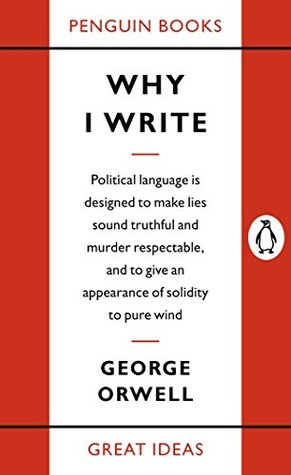More on this book
Community
Kindle Notes & Highlights
no book is genuinely free from political bias.
Every line of serious work that I have written since 1936 has been written, directly or indirectly, against totalitarianism and for democratic Socialism, as I understand it.
The beer is bitterer, the coins are heavier, the grass is greener, the advertisements are more blatant.
It is a land where the bus conductors are good-tempered and the policemen carry no revolvers.
Even when they are obliged to live abroad for years they refuse either to accustom themselves to foreign food or to learn foreign languages.
in an England ruled by people whose chief asset was their stupidity, to be ‘clever’ was to be suspect.
A businessman’s first duty is to his shareholders.
In September 1939 war broke out.
England fights for her life, but business must fight for profits.
who had eyes in his head
This meant that all through the critical years it was directly interested in the prosperity of British capitalism.
They had degenerated into a Permanent Opposition.
La Marseillaise
La Cucuracha,
‘against’ Fascism without being ‘for’ any discoverable policy
If the thing we are fighting for is altogether destroyed, it will have been destroyed partly by our own act.
It is curious, but till that moment I had never realized what it means to destroy a healthy, conscious man.
When I saw the prisoner step aside to avoid the puddle, I saw the mystery, the unspeakable wrongness, of cutting a life short when it is in full tide.
The first is staleness of imagery: the other is lack of precision.
a sure sign that the writer is not interested in what he is saying.
Never use a metaphor, simile or other figure of speech which you are used to seeing in print, ii. Never use a long word where a short one will do. iii. If it is possible to cut a word out, always cut it out. iv. Never use the passive where you can use the active. v. Never use a foreign phrase, a scientific word or a jargon word if you can think of an everyday English equivalent. vi. Break any of these rules sooner than say anything outright barbarous.


